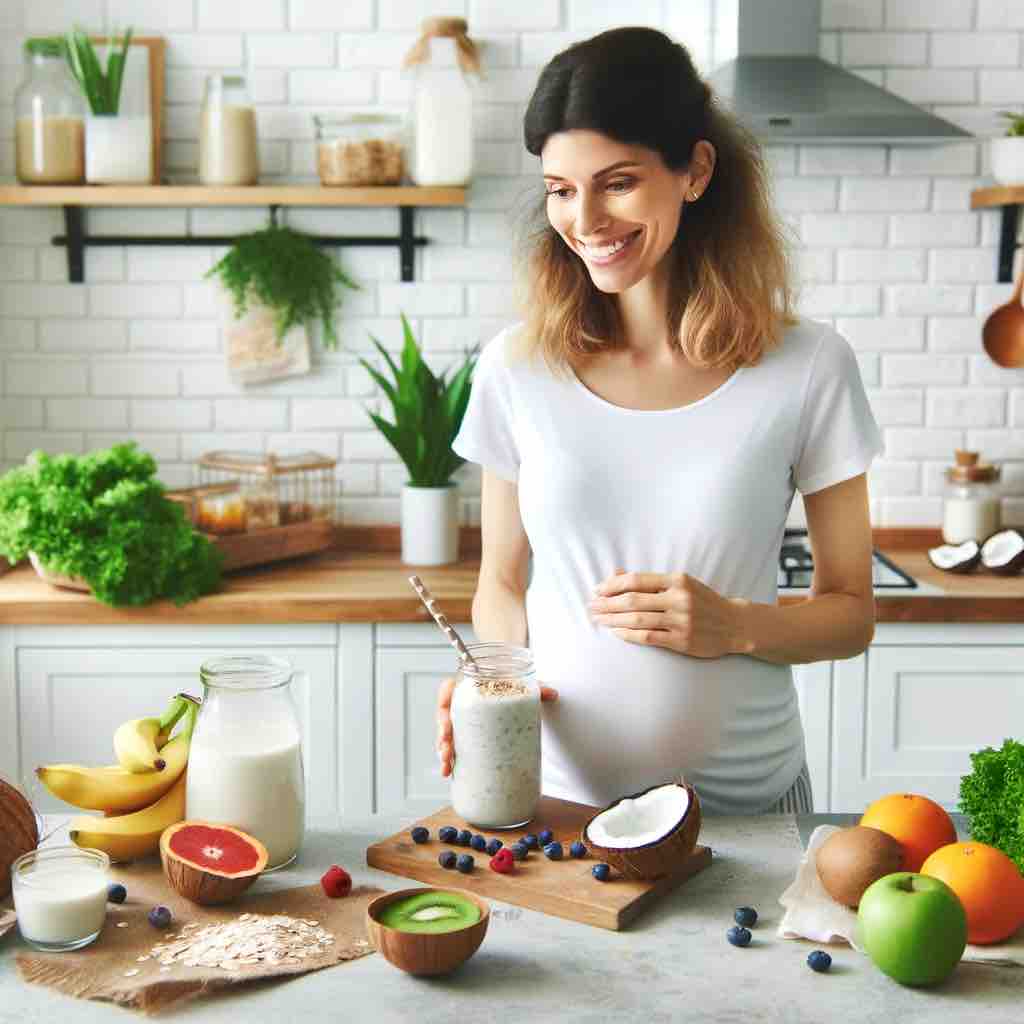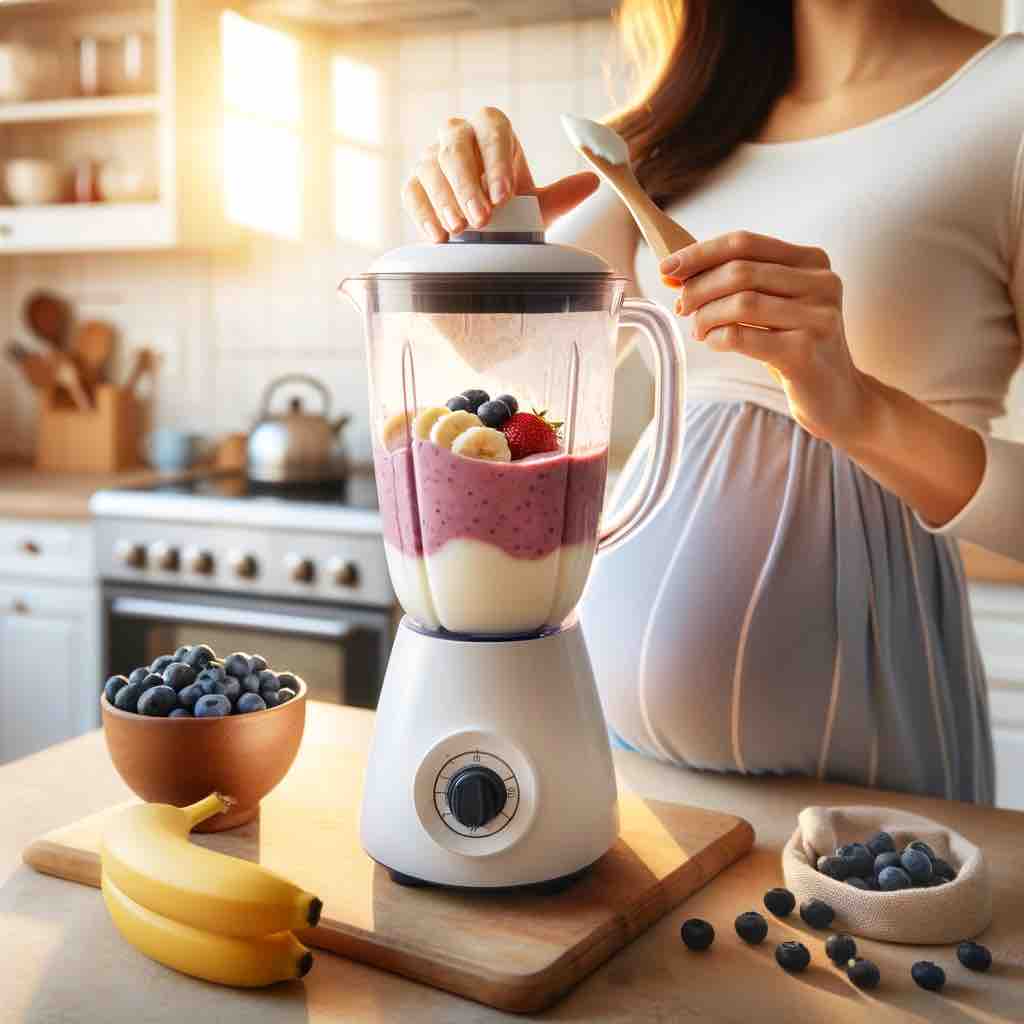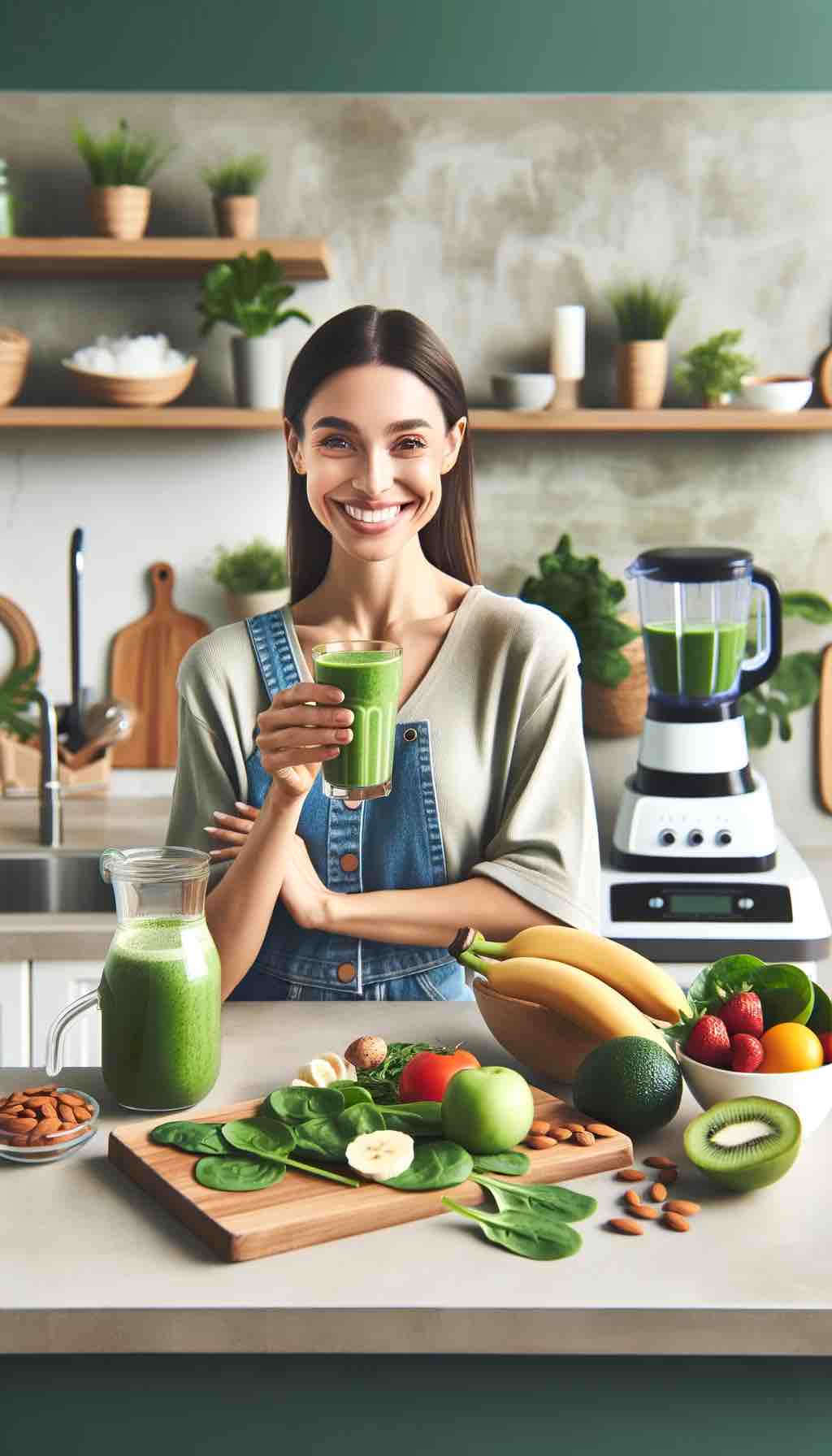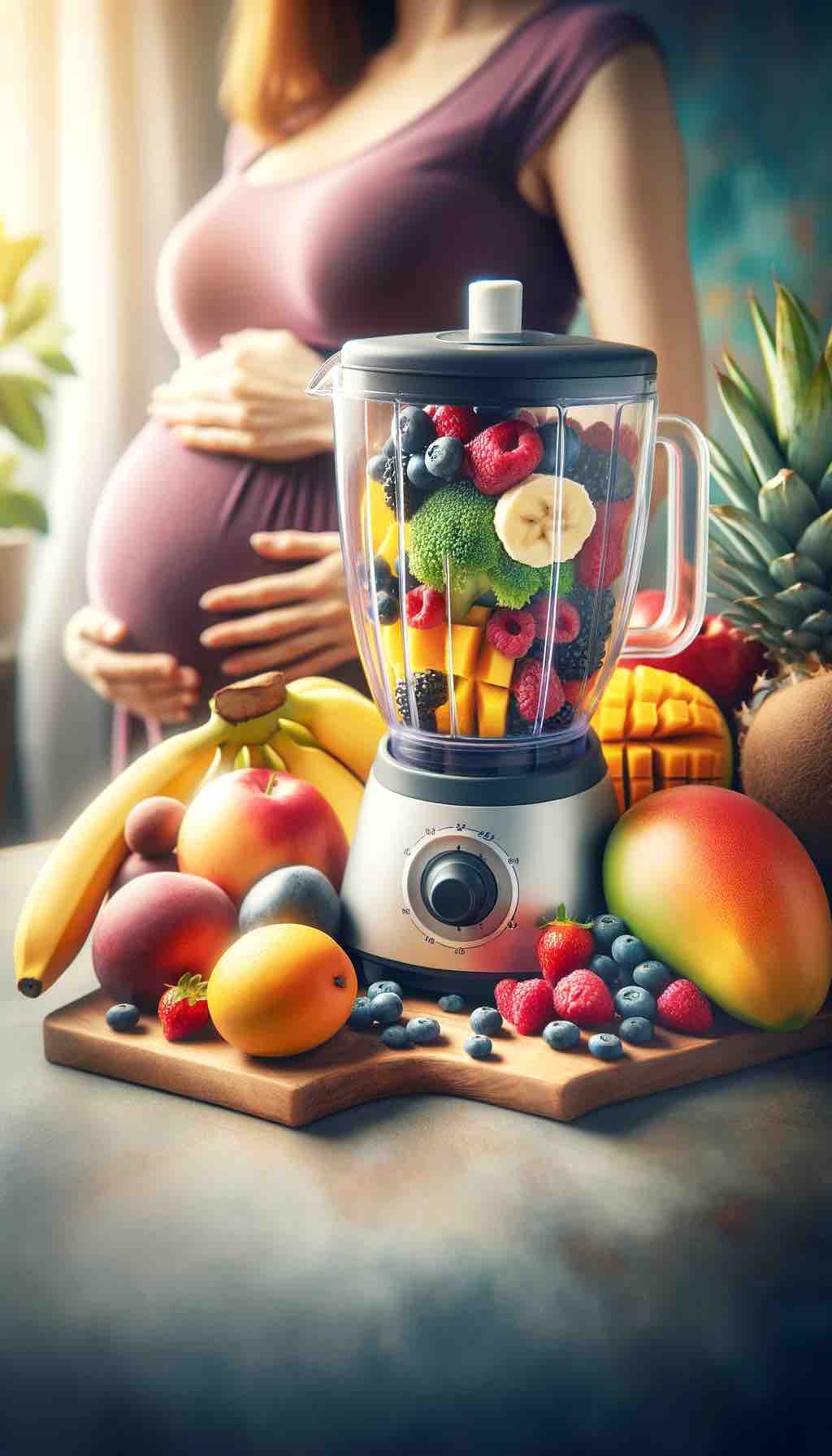
Introduction
During pregnancy, maintaining a balanced diet with sufficient fiber is essential for both the mother’s and baby’s health. To aid in this, I’ve developed five smoothie recipes combining the rich, creamy texture of coconut milk with the wholesome goodness of oats. These smoothies are not only delicious but also packed with the fiber and nutrients needed for maternal health.
Benefits of Coconut Milk and Oats
Before we dive into the recipes, let’s discuss why coconut milk and oats are beneficial during pregnancy. Coconut milk is a lactose-free alternative that provides healthy fats and a creamy base. Oats are a fantastic source of fiber, which is crucial for digestive health, and they also offer sustained energy, making them perfect for busy moms-to-be.
1. Tropical Coconut Oat Bliss
- Ingredients: 1 cup coconut milk, ½ cup rolled oats, 1 banana, ½ cup pineapple chunks, 1 tablespoon chia seeds.
- Preparation: Soak oats in coconut milk for 10 minutes. Blend with banana and pineapple until smooth. Add chia seeds for an extra fiber boost.
- Benefits: This smoothie offers a tropical flavor with the digestive benefits of oats and chia seeds, making it perfect for a fiber-rich start to your day.
2. Berry Oatmeal Delight
- Ingredients: 1 cup coconut milk, ½ cup oats, ½ cup mixed berries (like strawberries and blueberries), 1 tablespoon honey.
- Preparation: Blend soaked oats with coconut milk and berries until creamy. Sweeten with honey.
- Benefits: Berries add antioxidants and natural sweetness, while oats provide the necessary fiber for digestive health.
3. Chocolate Coconut Oat Indulgence
- Ingredients: 1 cup coconut milk, ½ cup oats, 1 tablespoon cocoa powder, 1 banana, 1 tablespoon almond butter.
- Preparation: Soak oats in coconut milk. Blend with cocoa powder, banana, and almond butter for a chocolatey treat.
- Benefits: This smoothie feels like an indulgence but is packed with nutrients. Cocoa adds antioxidants, and almond butter provides healthy fats and protein.
4. Green Coconut Oat Boost
- Ingredients: 1 cup coconut milk, ½ cup oats, 1 cup spinach, 1 apple, 1 teaspoon lemon juice.
- Preparation: Blend spinach, apple, and lemon juice with soaked oats and coconut milk for a nutrient-rich green smoothie.
- Benefits: Spinach adds iron and folate, crucial for pregnancy, while apple and lemon offer a refreshing taste and vitamin C.
5. Spiced Coconut Oat Warmth
- Ingredients: 1 cup coconut milk, ½ cup oats, 1 ripe pear, a pinch of cinnamon, a pinch of nutmeg.
- Preparation: Blend soaked oats with coconut milk, pear, and spices for a comforting, spiced smoothie.
- Benefits: Pear adds additional fiber and natural sweetness, while spices like cinnamon and nutmeg offer a warming flavor and natural digestive aid.
Conclusion
These five coconut milk and oats smoothies provide the perfect blend of taste and nutrition, particularly beneficial for expectant mothers. They are easy to prepare and are packed with essential nutrients and fiber to support maternal health. Enjoy these smoothies as a nutritious breakfast or a satisfying snack!
10 FAQs for “Fiber-Packed Maternal Nutrition: 5 Coconut Milk and Oats Smoothies”
- Is coconut milk safe for consumption during pregnancy? Yes, coconut milk is safe and a healthy choice during pregnancy. It’s lactose-free and contains beneficial fats, but it’s always good to consume in moderation.
- How do these smoothies benefit pregnant women? These smoothies are rich in fiber from oats, which aids in digestion, and healthy fats from coconut milk, important for fetal development. They also provide sustained energy, essential for expectant mothers.
- Can I use instant oats for these smoothies? Yes, instant oats can be used, but whole rolled oats are preferable for their higher nutritional content and better texture in smoothies.
- Are these smoothies suitable for breakfast? Absolutely! These smoothies are designed to be nutritious and filling, making them perfect for a quick and healthy breakfast option.
- Can I add protein powder to these smoothies? Yes, you can add protein powder to increase the protein content, which is beneficial during pregnancy. Choose a natural, unsweetened variety.
- What can I substitute for coconut milk if I’m allergic? You can substitute coconut milk with other plant-based milks like almond milk or oat milk, or even cow’s milk if you prefer and are not lactose intolerant.
- How can I make these smoothies sweeter naturally? To naturally sweeten the smoothies, you can add ripe bananas, dates, or a drizzle of honey or maple syrup.
- Can I prepare these smoothies ahead of time? These smoothies are best enjoyed fresh, but you can prepare them up to 24 hours in advance and store them in the refrigerator.
- Are these smoothies high in calories? While these smoothies contain healthy ingredients, they are not excessively high in calories. However, be mindful of portion sizes and additional sweeteners.
- Can I add other fruits to these smoothies? Certainly! Feel free to add fruits like berries, mango, or apple to enhance the flavor and nutritional value of the smoothies.
Blog Tags
Pregnancy Nutrition, Coconut Milk Recipes, Oats Smoothies, High Fiber Diet, Maternal Health, Healthy Breakfast, Lactose-Free Options, Nutrient-Rich Foods, Quick Pregnancy Meals, Natural Ingredients Smoothies













